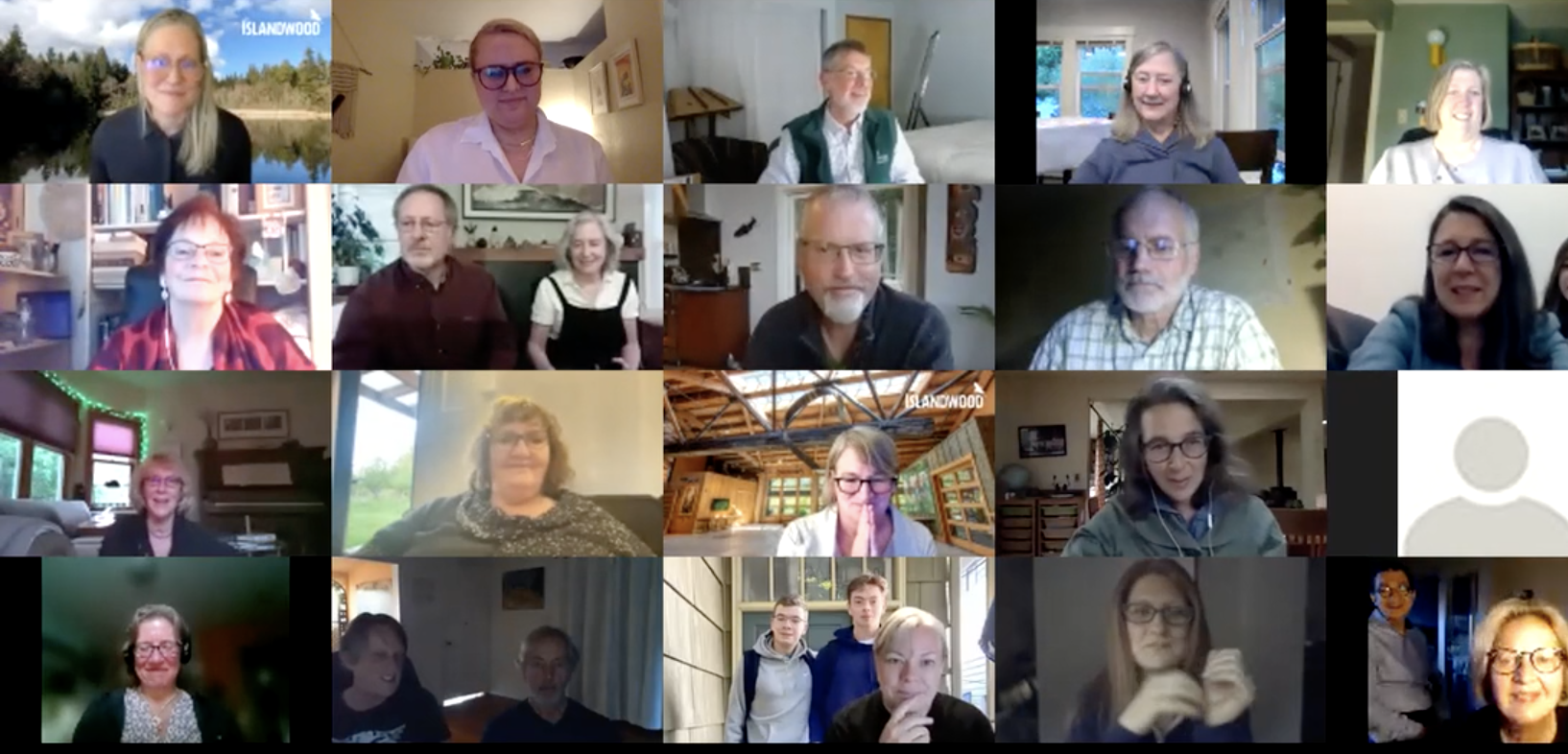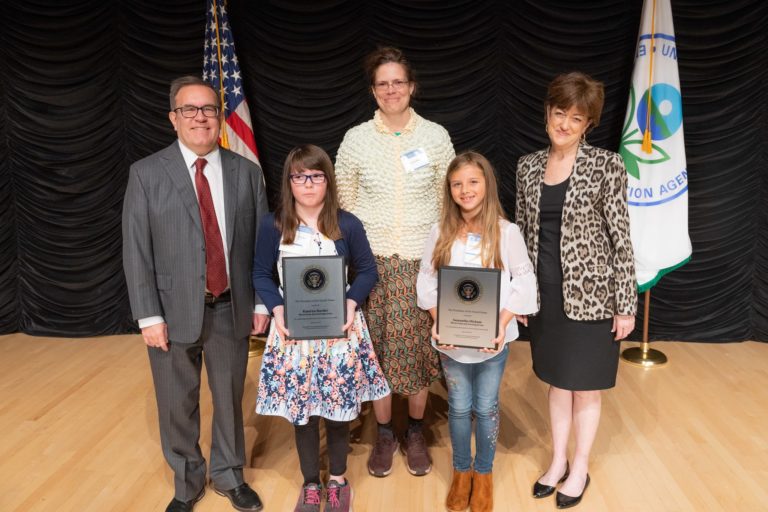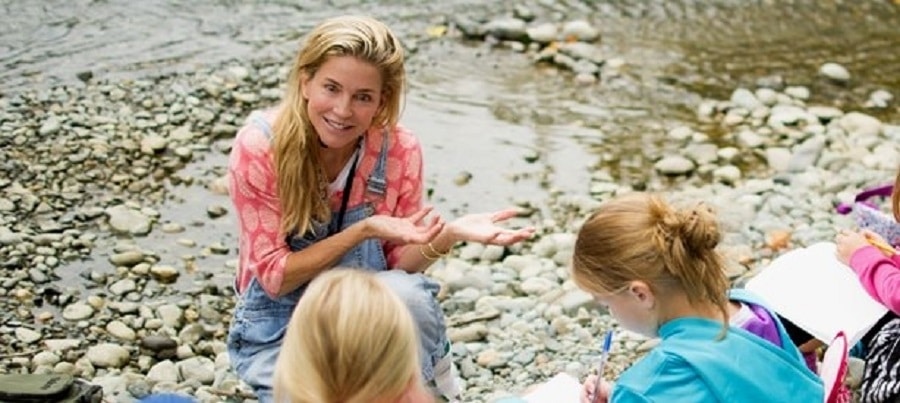Each year, IslandWood is proud to partner with Seattle Foundation in honoring three extraordinary Washington…
Last month, as part of the first-ever IslandWood Community Week in the lead-up to our annual Dinner in the Woods event, we held a virtual celebration to honor this year’s Patsy Collins Award recipients. We were thrilled to be able to highlight these educators’ commitment to creating powerful learning experiences for their students.
Offered in partnership with Seattle Foundation, the Patsy Collins Award was created to celebrate the legacy of philanthropist and civic leader Patsy Collins. The aim of the award is to recognize K-12 Washington teachers who are engaging students in equitable project-based learning that inspires environmental awareness and stewardship.
It’s an understatement to say that this has been an extraordinarily challenging year for teachers and students. And that’s exactly why we believe it’s more important than ever to celebrate teachers who have continued to find ways to engage all students in education that inspires positive environmental and community change.
Read on to learn more about each of this year’s recipients!
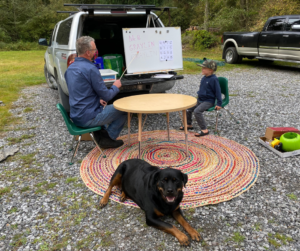
2021 Patsy Collins Award recipient, Brian Goff
Last August, when the parents of Brian’s Kindergarten students made it clear that they weren’t interested in virtual school for their children, he rose to the challenge and developed a traveling in-person program he named School-Home.
As part of this program, Brian drove to each of his students’ homes every week, bringing materials and activities with him. By addressing barriers like transportation, lack of access to the internet, and other technical issues, Brian ensured that all his students could participate in the program. In addition, Brian created a Spanish-language version of all school documents and brought a translator along with him to students’ homes when necessary to facilitate communication. Each of these steps helped ensure that parents didn’t have to simply passively accept this new school model – they could wholeheartedly embrace the benefits it provided for them and their students.
Brian says that, “I’ve never bonded with families and children the way I was able to, being at each home, each week. I’m considering how I might use this model in the next school year, pandemic or not.”
When his students began to crave more contact with peers, Brian redesigned the program to take place outdoors in small groups. Not only did this new program design provide the social connections his students craved, but it also allowed students to explore their natural environment together.
Continuing this collaborative approach to outdoor learning, Brian plans to set up a ShelterLogic tent, in which students will expand the project they began in the fall to create a model of a forest floor. And, together with fellow teachers at Lopez Island Elementary, Brian also hopes to partner with Indigenous carvers, builders, artists, and carpenters to erect a traditional cedar longhouse as a way to honor the Indigenous peoples who have stewarded Lopez Island and its waters since time immemorial.
Reflecting on the past year, Brian says, “How could I ever again imagine school staying inside four walls? Covid has been tragic and lonely. Through Covid darkness, I discovered the diamonds in the hearts of young students shine much brighter when they engage in the outdoors, feel connectivity and sense of place, and discover optimism and opportunity in the toughest of times.”
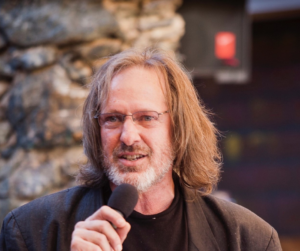
2021 Patsy Collins Award recipient, Craig Parsley
This year, Craig received nearly a dozen separate nominations for the Patsy Collins Award – a testament to the exceptional impact he has had on his students, colleagues, and community members over the course of his teaching career.
During his time at Louisa Boren STEM K-8 as a Science and Career and Technical Education (CTE) teacher, Craig has spearheaded two celebrated programs: Green Technologies for the 21st Century and Geotechnical Science. These engaging, hands-on programs prepare students for the wide variety of learning opportunities available to students entering Seattle’s STEM High Schools, Running Start, and College in the Classroom programs. Craig’s students have consistently participated in local, state, and national competitions, and have won many prizes in the Seattle Public Schools Science and Engineering Fair for their green technology innovations and environmental science investigations.
Over the past year, Craig rose to the challenge of remote science teaching by developing miniaturized learning modules, including take-home kits that allowed students to conduct project-based science learning in their own homes. Three examples of these exceptionally creative modules include the Micro-Motor Kit, the Mini-Skateboard Kit, and the Zombie Apocalypse (Off-the-Grid) Home Kit.
Reflecting on the impact of the Zombie Apocalypse Kit and Craig’s innovative remote teaching, a parent of one of Craig’s former students said, “Instead of seeing the pandemic as an impediment, Mr. Parsley turned it into the ultimate opportunity by giving his students not only the concepts for how to survive during an apocalypse, but also revealing the importance of compassion; providing a space to openly share ideas; and imagining a more sustainable, socially equitable society together.”
Each of the many nominations that Craig received were full of an outpouring of appreciation and support. One former student shared that “My love for engineering and science began at Louisa Boren STEM and it was all thanks to Mr. Parsley. He has positively influenced every life he’s ever come across and I am beyond thankful for having the opportunity to be in a learning environment with a teacher like him.” That student also shared that a class she took with Craig, in which they discussed the climate crisis and brainstormed solutions to climate issues in Seattle, was a main motivator for her current role as co-founder of the Cleveland, Ohio hub of the youth-led Sunrise Movement, which seeks to address the climate crisis. “Mr. Parsley’s lessons not only focused on science. He also taught lessons on the importance of racial equality, justice, and respect. Mr. Parsley is someone who has given me the courage to step up and take control of my future, and I am positive he’s done the same for other students.”
In Kit’s words, she “brings a deep appreciation for the natural world into my teaching and learning, where I feel tremendously honored to support young people in finding their place as citizens and scientists on a local and planetary scale.”
This commitment to supporting and inspiring young people has been evident throughout Kit’s 20-plus year career. She has led her students to participate in many environmental projects, including stream quality monitoring with the Jefferson Conservation District, planting trees with Northwest Watershed Institute, and tending a native plant nursery with North Olympic Salmon Coalition.
Since the beginning of Kit’s teaching career, she has been committed to deepening her student’s appreciation for the outdoors and offering real-world stewardship opportunities. And the impact of her work is clear – many of Kit’s former students credit her with inspiring their current careers in environmental science, education, and policy.
In addition, Kit has worked to ensure that students who haven’t traditionally thrived in a typical classroom are able to participate in opportunities like the Youth Environmental Science (YES!) Program, for which she served as a liaison and special educational advisor for four years. She has also been a strong and consistent advocate for English-language learners, LGBTQIA+ students, students with learning disabilities, and those with adverse childhood experiences (ACES), always focusing on each students’ gifts, talents, and strengths.
Judith Rubin, Director of Stewardship and Public Engagement for the Northwest Watershed Institute, who nominated Kit for the award, sums up Kit’s impact as an educator when she says that “As a scientist who works with many teachers, I am in awe of Kit’s depth of knowledge in geology, ecology, botany, evolution, habitat loss, climate change, ocean acidification and river restoration. I am even more floored by her teaching skills and the mutual respect she fosters in the classroom. Kit is personally responsible for igniting an environmental interest in hundreds if not thousands of students over the years.”
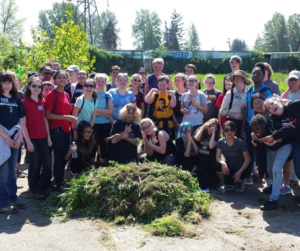
2021 Patsy Collins Award recipient, Kathy Hall
Our award committee was impressed and inspired by the depth and breadth of the projects that Kathy has spearheaded in her science classroom.
Most recently, she introduced the Watt’s Up project to her students, which inspired them to create positive environmental change by researching the feasibility of a solar installation for their school. In February 2019, Kathy’s students presented their solar installation proposal at Governor Inslee’s STEM Education Innovation Alliance meeting, sharing their project with the governor, committee members, and other alliance participants. After gaining approval for their proposal from the school board, Kathy’s students committed to raising the money necessary for the project, and ultimately secured $198,000 to make the first solar installation in Tacoma Public Schools a reality in July 2022!
Kathy has also consistently brought students to the Mount Rainier Institute in University of Washington’s Pack Forest to engage in science learning and outdoor exploration. She has worked to make these trips accessible for all students in a variety of ways, from securing grants to cover tuition and transportation costs, to partnering with the Washington Trail Association’s gear library to provide students with boots, rain gear, jackets, and more.
Despite the extreme challenges of the past year, Kathy has continued to care for her school and her community, partnering with Washington State University to host a seed and soil giveaway Earth Day event which provided over 100 families with tools, materials, and know-how to grow their own food.
Beyond these exceptional achievements, Kathy has developed a science program at Jason Lee where students’ voices matter, and where they are actively encouraged and supported in making positive change in their communities – locally, regionally, and globally. Kathy’s nominator shared that her “science classrooms are cutting-edge communities with the purpose of developing our next generation of thinkers to consciously view the world as interconnected, interrelated, and interdependent. The purpose is to connect with, teach, and develop students who have a passion and vision for solving real problems through project, place, and service-based learning opportunities.”
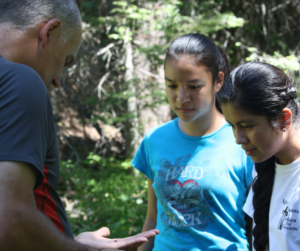
2021 Patsy Collins Award recipient, Mike Bosko
Mike believes that his role as a teacher is to provide the conditions for his students to explore their passions – and then watch as they flourish. “I feel that the work we do [as teachers] is made possible by our students,” he says. “They invest their own time, curiosity, drive, and interests – we simply provide the opportunities for them to explore.”
Mike’s school, Wahluke Junior High, is in rural Mattawa, WA – a setting that provides both exceptional opportunities for learning, as well as a few challenges. Since Mattawa is far from major cities, with reduced access to academic enrichment opportunities such as guest speakers and external programs, Mike developed a science internship program at his school that has allowed students to gain exposure to additional education and career opportunities and help students utilize classroom science to seek solutions to real-world stream and forest ecology problems.
What originally began as a Science Explorer Club grew into an internship that allows students to participate in multi-day camping trips to the Teanaway River Basin, during which they can collect data and get a glimpse into the work of stream ecologists.
“Instead of talking about streams,” Mike says, “we hike along and within them. Instead of talking about what goes on beneath the stream’s surface, we snorkel the streams to experience their underwater ecosystem.”
Mike also facilitated an opportunity for students to partner with scientists to determine the effectiveness of Yakama Nation Fisheries habitat restoration projects in Indian Creek. As part of this project, students were able to work side-by-side with Central Washington University professors to participate in college-level biology work, collecting fish species data, analyzing stream substrate size, collecting aquatic macroinvertebrate samples, and mapping the stream using GPS.
It is a testament to Mike’s ability to engage and inspire his students that, even when in-person school closed during the pandemic, students would continue to teleconference with him to go over their data collection progress.
Mike’s impact is summed up by one of his colleagues at Wahluke, who shared that “Mike’s belief in his students’ ability to successfully embrace science is the core of his success in building a project-based experience that has already sent students into their future with an understanding of a natural ecosystem. As Mike is always aware, seeding a community with students who have an appreciation for and understanding of the natural world is critical to our local ecosystems’ health, as well as the planet’s future…We all remember that one special teacher who made a lasting difference in our lives through their presence and attention, opening our hearts and minds to previously unimagined possibilities. There is no doubt that Mike is that teacher.”
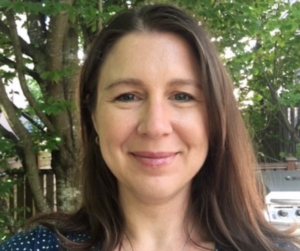
2021 Patsy Collins Award recipient, Rachel Petrik-Finley
In the words of her nominator AJ Katzaroff, a fellow Seattle Public Schools teacher, Rachel “exemplifies the values of the Patsy Collins award because of her relentless passion for student learning in environmental science, in particular in our global struggle with climate change.”
Faced with the challenges of remote learning over the past year, Rachel spearheaded her team’s work to provide accessible online materials for students, including designing materials to maintain the integrity of the project-based learning she is committed to providing in the classroom.
The units that Rachel created during the pandemic reflect her passion for inspiring students to create positive change for their communities and environment. Each unit centers a different environmental question, allowing students to explore their interests, connect more deeply to the world around them, and engage in environmental activism and advocacy by designing public services announcements, submitting artwork to environmental art contests, and applying for United Nations leadership positions related to fresh and marine water quality.
Rachel consistently encourages her students to explore the interconnections between human behavior and climate change. A central theme in Rachel’s instruction and curriculum design is her commitment to highlighting issues of environmental injustice, and the disproportionate impact of climate change on communities of color. This year, her Global Climate Change unit focused on stories from climate refugees and explored individuals and BIPOC-led organizations who are working to address climate change in their communities.
Rachel not only provides opportunities for students to dive deeper into content that particularly interests them, but also connects classroom learning to environmental science careers, consistently uses current events to emphasize the role of environmental science in her students’ daily lives and ensures that students from nondominant cultures are able to access learning that centers their own experiences and knowledge systems.
Rachel’s influence on her colleagues, students, and community is clear. In her nominator’s words, “Rachel inspires so many teachers and students to be advocates for the environment and climate change such that even teaching at a different school, students sometimes mention that they have heard about Dr. Finley and her inspiring teaching. Her work is deeply appreciated not only by the hundreds of students in Seattle using her materials each year as they learn to become environmental advocates, but also by the larger community who benefit from her dedication and compassion.”

